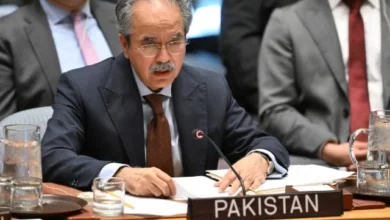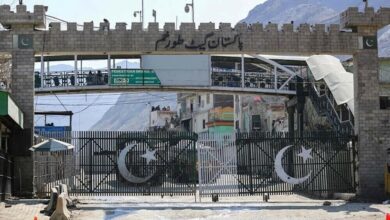ISLAMABAD: The Council of Islamic Ideology (CII), during its 240th meeting on Wednesday, adopted a 10-point declaration affirming that Article 191 of the Constitution guarantees every citizen the right to freedom of expression and access to information, provided it aligns with Islamic principles, national solidarity, and the laws of the land.
CII Chairman Dr Raghib Hussain Naeemi, who presided over the session, addressed the controversy surrounding his earlier statement declaring the use of VPN as un-Islamic and against Shariat.
He clarified that the statement was the result of a “clerical error,” which had led to unnecessary confusion.
“No one has declared VPNs against Shariah or un-Islamic, a typing error in our previous statement created a misunderstanding after ‘not’ was omitted from it,” Dr Naeemi at a press conference said after the council meeting.
The CII chairman said that what was mentioned in the statement was taken from his Jumma sermon and there was a typing error. He also rejected an impression that the previous statement was issued under any pressure.
However, he said that it was a matter of shame for the nation that 20 million Pakistanis visited websites having blasphemous, vulgar material, and content against national security.
He said that the deadline of November 30 has been given to get VPNs registered and afterwards, every user including ministers and officials should use registered software application.
Hafiz Tahir Ashrafi, on the occasion, maintained that there was no political motive behind the previous statement. They only wanted that there should be no use of any software for blasphemy and vulgarity, he said.
Dr Naeemi had already clarified his statement which invited criticism even from religious circles, while saying that being un-Islamic or not depends on its use or misuse.
Meanwhile, the CII issued a 10-point declaration after the 40th meeting of the council.
The CII meeting noted that social media is an effective tool for expression of opinions and thoughts and the same can be applied for good use while there is also possibility of misuse and negative use of the same technology. Therefore, it is incumbent upon every Muslim to use the same in the right and legal purposes.
Secondly, social media should be used for promotion of Islamic teaching, for character-building, education and training, business purposes, promotion of preaching and national security and other legal purposes.
Thirdly, the social media should not be used for blasphemy, fake material, indecent material, lawlessness, sectarianism and other illegal purposes, which are against Shariat.
Fourthly, VPN itself is not illegitimate or against Shariat rather it depends on use and misuse of this technology. If VPN is used for blasphemy, lawlessness, anarchy and against national security, then it will be against Shariat and preventive steps should be applied to stop the misuse.
Fifthly, there should be implementation on government laws. The users should prefer to use registered VPNs.
Sixthly, it is the responsibility of the government of an Islamic country to facilitate its citizens for useful application of technologies and take preventive measures to stop the misuse of social media.







